Venerable Nun Giac Hue - Truong Nhu Thi Tinh (seated in the middle) with her relatives - Archival photo
That was Mrs. Truong Nhu Thi Tinh, who later became Venerable Nun Giac Hue, the founding abbess of Hoa Nghiem nunnery, also known as Ba Hoang temple in Hue .
To become the wife of a deposed prince.
In early 1889, King Đồng Khánh passed away when Prince Bửu Đảo was not yet four years old. Prince Bửu Lân, son of King Dục Đức, was chosen to succeed him, taking the regnal name Thành Thái. Prince Bửu Đảo was weak, received very few privileges, and was even considered a thorn in the side of King Thành Thái. According to FDTessa, in an article about King Khải Định published in France in 1922, King Thành Thái even forbade Bửu Đảo from entering the palace, and "did not miss an opportunity to oppress him"...
French documents also indicate that after the death of the king, his father, the two mothers, Lady Thánh Cung and Lady Tiên Cung, took their children to live at Đồng Khánh Mausoleum until Prince Bửu Đảo turned 18, at which point they returned to live at Phụng Hóa Palace, which is now An Định Palace.
He was said to be very passionate about gambling. An internal document from a royal residence in Hue states that this passion for gambling was influenced by his mother, Duong Thi Thuc. It says that he "often visited his mother and stayed to play cards"; his mother "played cards all day long, so that's why the Emperor was so fond of gambling in his youth"...
According to researcher Vo Huong An, their lives at that time were: "To put it bluntly, they were poor, something that some people in Hue at the time who had the opportunity to be close to Phung Hoa Palace knew. The king and officials were all paid by the French, as were the princes and princesses. They were poor but fond of entertainment, with gambling and singing, so they accumulated quite a lot of debt."
In 1904, Prince Bửu Đảo married Miss Trương Như Thị Tịnh (1889 - 1968), the beloved daughter of the high-ranking official Trương Như Cương. The marriage was likely premeditated by both families. The high-ranking official Trương Như Cương was highly regarded by the Emperor during the reign of Emperor Đồng Khánh, so it's understandable that the two mothers chose him as their son-in-law to leverage his influence at the time.
Old stories also recount that the father-in-law promised his son-in-law a monthly allowance after the wedding, but failed to do so, causing the son-in-law to abandon his wife and indulge in gambling. Some stories within the royal family also recount numerous instances where Prince Bửu Đảo forced his wife to return home and beg his parents for money to pay off his large gambling debts.
Unable to bear her husband's gambling addiction, his constant need to beg for money from his parents, and his neglect of their marital life, in 1913, Mrs. Truong Nhu Thi Tinh decided to leave him. However, according to the customs of the Nguyen dynasty at that time, once a woman was the wife of a prince, she could not leave him.
Cultural researcher Tran Dinh Son said that the divorce proceedings dragged on for quite a long time. Out of love for his daughter, the high-ranking official Truong Nhu Cuong sought the intervention of the French. Thanks to this, his beloved daughter was able to leave her husband and go to the mountains to establish a hermitage for religious practice.
Build a temple and become a monk.
Hoa Nghiem Pagoda is located on the slopes of Sam Mountain, in Huong Thuy town, Thua Thien Hue province, facing the intersection of Trung Nu Vuong and Phung Quan streets. When we visited, someone expressed concern, "fearing that if the pagoda becomes well-known, people will come and disturb the peaceful atmosphere of the place." After a while, someone introduced us to the founding abbot, Giac Hue, whose portrait is enshrined in the central altar and whose tomb is located on the strip of land to the right of the pagoda.
Portrait of Venerable Nun Giác Huệ, secular name Trương Như Thị Tịnh, founder of Hoa Nghiêm Pagoda in Huế - Photo taken by THÁI LỘC
"The nun was once the wife of King Khai Dinh, so people often call her 'Empress,' and the nunnery is also called Empress Nunnery. The stream in front of the temple is also called Empress Nunnery Stream. Actually, when she founded it, the nun named it Hoa Nghiem Pavilion, just a small hermitage, but later it was expanded, so it was named Hoa Nghiem Temple," this person explained.
When she was a young lady, Venerable Nun Giác Huệ was well-educated, knowledgeable, and very skilled in literature and poetry. One of her closest friends, with whom she often composed and recited poems, was the female poet Đạm Phương.
According to cultural researcher Tran Dinh Son, upon learning of her friend's resolute decision to renounce wealth and become a nun, the poetess Dam Phuong composed a long, six-line poem as a gift, expressing her sincere and touching feelings: "The plum blossom is thin, the willow is weak from the frost / My heart aches with longing for my friend, filled with sorrow and bewilderment / My heart is torn apart / Where has my friend gone, like a crane among the clouds? / Rain pours, wind blows sadly / Will our hidden sorrows ever be understood...?"
There is also a theory that in 1916, three years after the "divorce," Phung Hoa Cong ascended the throne with the reign name Khai Dinh. The king, remembering their past relationship, sent someone to Hoa Nghiem Pavilion to meet his former wife and express his intention to bring her back to the palace as his first-rank concubine, and later to further elevate her to the rank of Imperial Noble Consort, but she steadfastly refused.
The tomb of the founding abbess of Hoa Nghiem Pagoda - Venerable Nun Giac Hue, who was once the wife of King Khai Dinh when he was still a prince - Photo: Archival.
Important contribution
The collection of Chinese-language books at Hoa Nghiem Pagoda belonging to Venerable Nun Giac Hue is incredibly vast, containing many rare and valuable books, making it a valuable reference destination for many intellectuals of the time.
"She was very knowledgeable, especially in Chinese characters. I heard her collection of Chinese books contained many rare and valuable volumes. When she was at Hoa Nghiem Pagoda, many prominent figures and monks from Thien Mu Pagoda, Tay Thien Pagoda, Dieu De Pagoda... often visited to discuss and exchange poetry. I heard that later, many of her precious books were distributed to other pagodas," said nun Thich Nu Chon Toan, who practices at Dieu Vien Pagoda.
During her time practicing Buddhism at Hoa Nghiem Pagoda, she made significant contributions to Hue Buddhism. According to researcher Tran Dinh Son: "She wholeheartedly supported eminent monks such as Venerable Hue Phap (Thien Hung Pagoda), Venerable Tam Tinh (Tay Thien Pagoda), Zen Master Vien Thanh (Ba La Mat Pagoda)... in teaching, publishing scriptures, and laying the groundwork for the revival of Buddhism in the capital city of Hue."
In the first half of the 1960s, the Sam and Hoa Nghiem mountain areas were engulfed in fierce fighting. Venerable Nun Giac Hue requested a transfer to Dieu Vien Pagoda, located more than a kilometer away, to seek refuge and practice her faith. According to Nun Chon Toan, she was given a private, enclosed room in the meditation hall in front of the pagoda, and the pagoda provided her with meals. In her final years, she could no longer recite scriptures because she became completely deaf.
"She was very deaf, so whenever anyone needed something, she would use sign language to write. During the Tet Offensive in 1968, when the cannons were firing from Phu Bai to Hue with deafening roars, she lamented, 'Oh, how miserable it is, all this noise and commotion!'" recounted nun Chon Toan.
On her last day, June 20, 1968, she was alone in her locked room. Nun Chơn Toàn discovered her lying on the bed, dying. Unable to open the door, she climbed over the wall and called for help. After the funeral, the temple asked the abbot of Diệu Đế Temple to hire a vehicle and a few others to transport her body through the bombs and bullets to Hoa Nghiêm Pagoda for burial inside the previously constructed pagoda.
The book "Venerable Virtuous Monks and Lay Buddhists of Thuan Hoa" states that in 1913, Mrs. Truong Nhu Thi Tinh went to Tay Thien Pagoda to express her wish to become a nun and was granted permission. The abbot of Tay Thien Pagoda gave her the Dharma name Giac Hue.
In 1916, she returned to Sam Mountain, bought land, and established a thatched hut named Hoa Nghiem Pagoda, where she began her spiritual practice. In 1962, she requested to move to Dieu Vien Pagoda, about a kilometer away, entrusting Hoa Nghiem Pagoda to two nuns, Chon Vien and Chon Tinh, to continue its care. Venerable Giac Hue passed away at Dieu Vien Pagoda in 1968 and was later interred in a stupa at Hoa Nghiem Pagoda, at the age of 79, having served in the monastic life for 55 years.
-------------------
From a maidservant, she rose to the highest position and became the mistress of the imperial harem, considered worthy of being called a mother figure. This was Hoang Thi Cuc - the first-rank consort of Emperor Khai Dinh, Empress Dowager Doan Huy during the reign of Emperor Bao Dai, often respectfully referred to as "the Virtuous Empress Dowager".
Source: https://tuoitre.vn/bi-an-my-nhan-noi-cung-vua-khai-dinh-ky-2-ba-hoang-ly-di-lap-chua-di-tu-20231125230638945.htm#content-1


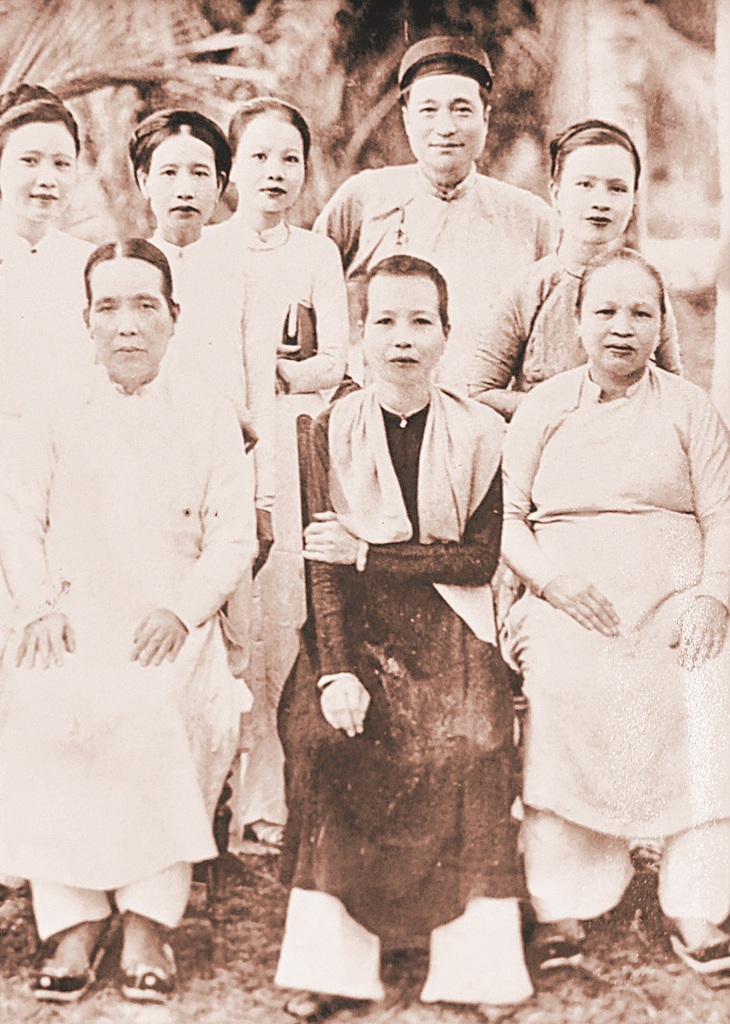
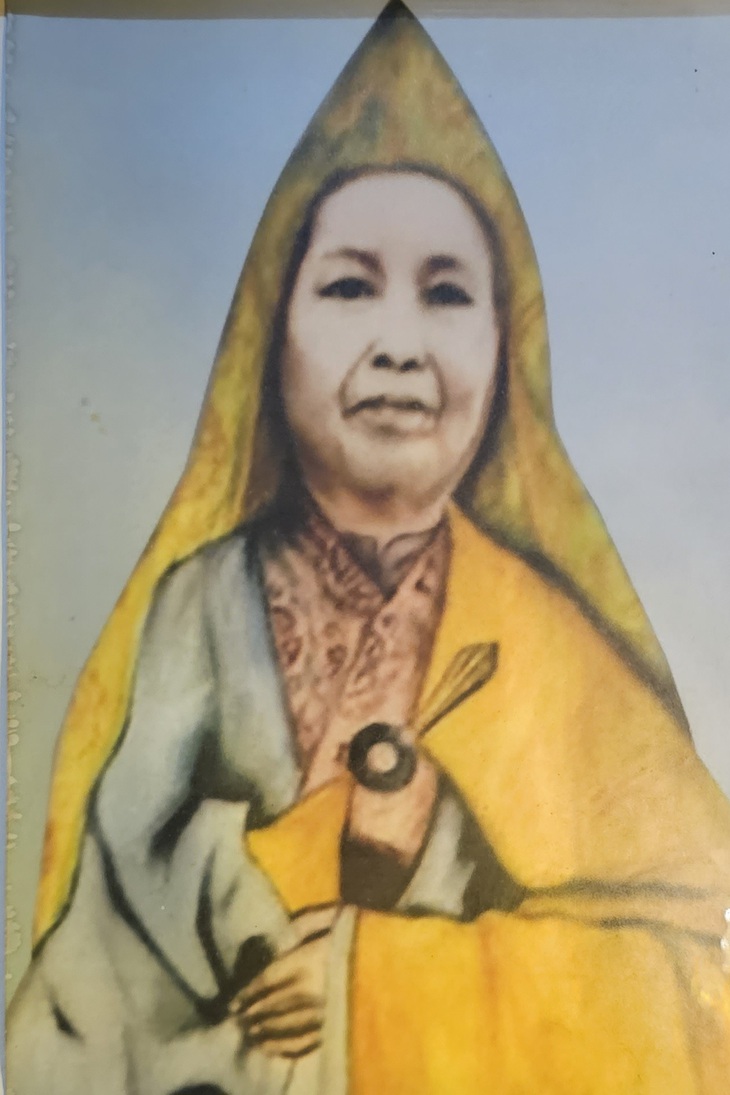
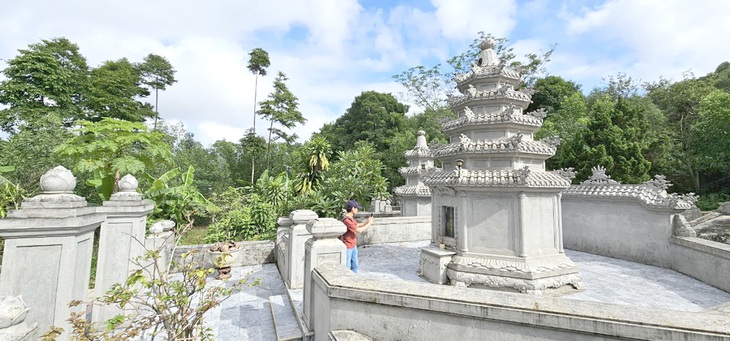







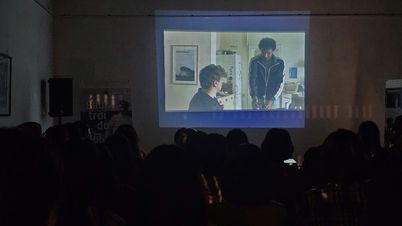

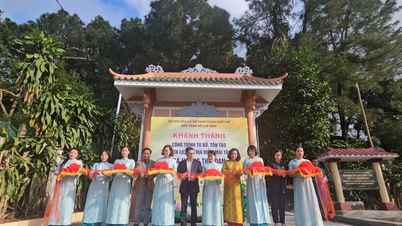





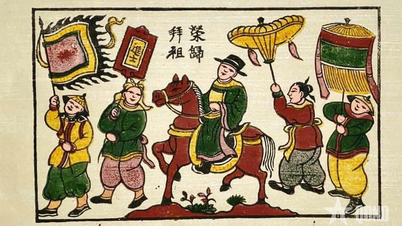

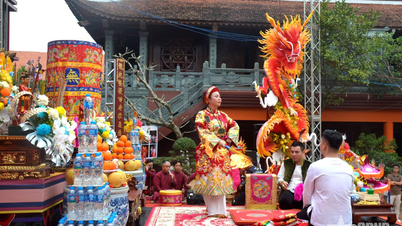








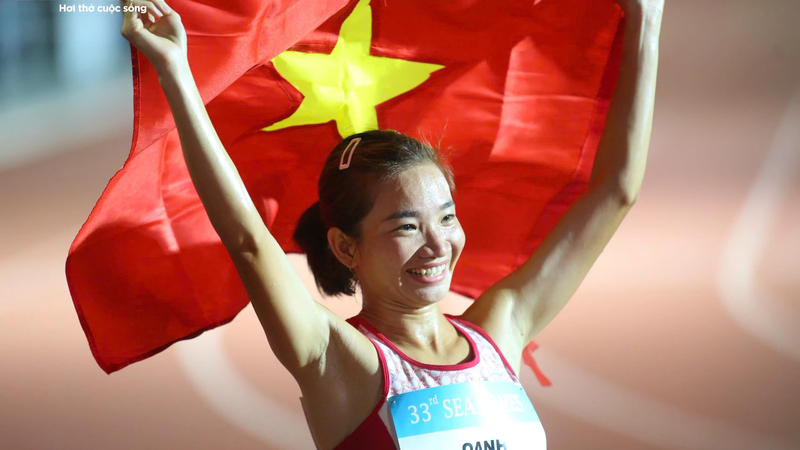




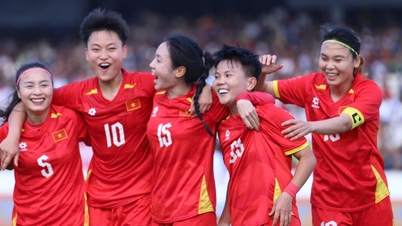

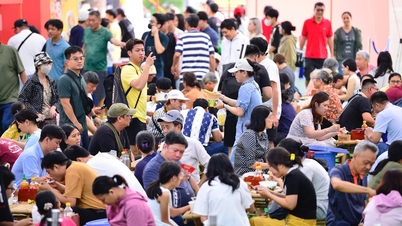
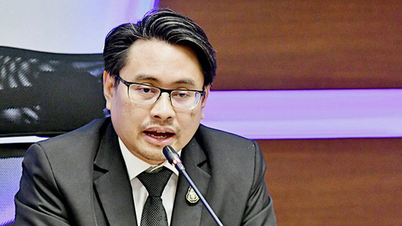


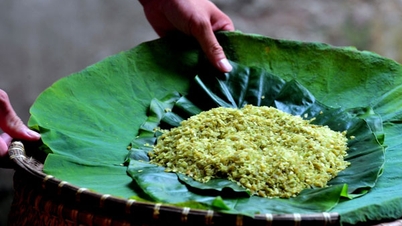

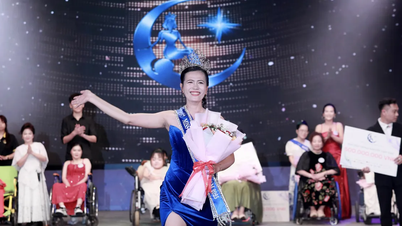


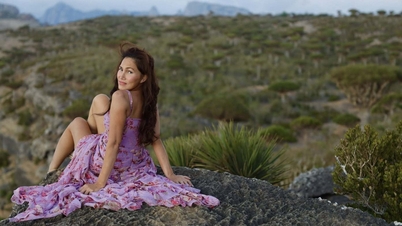

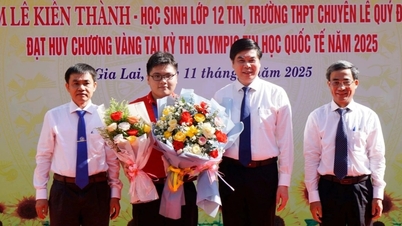





















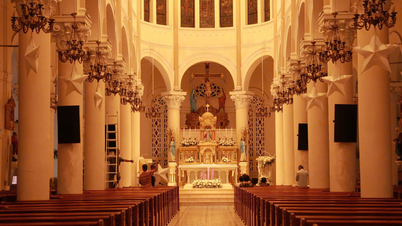

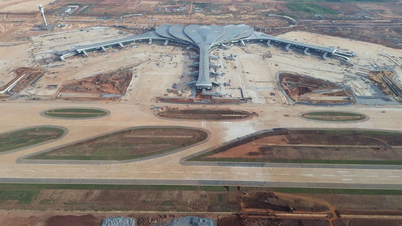
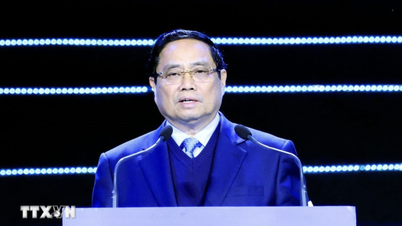





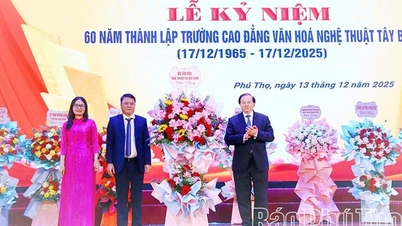

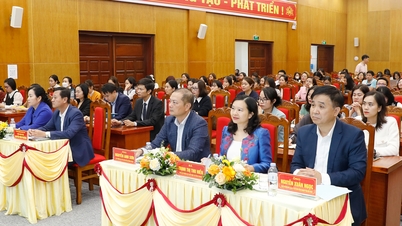

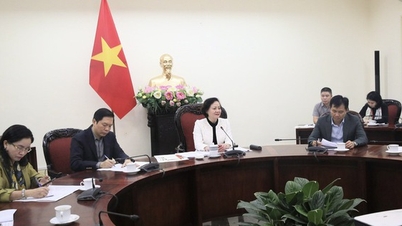
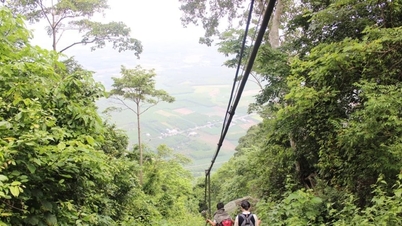

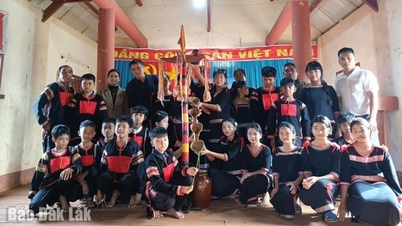



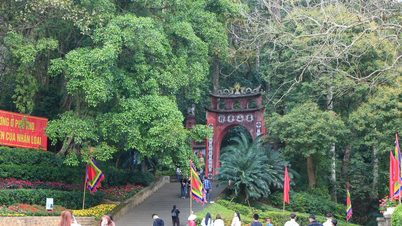

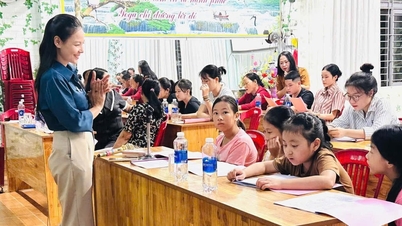
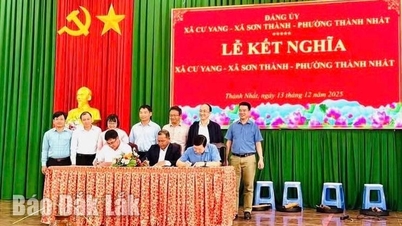














Comment (0)